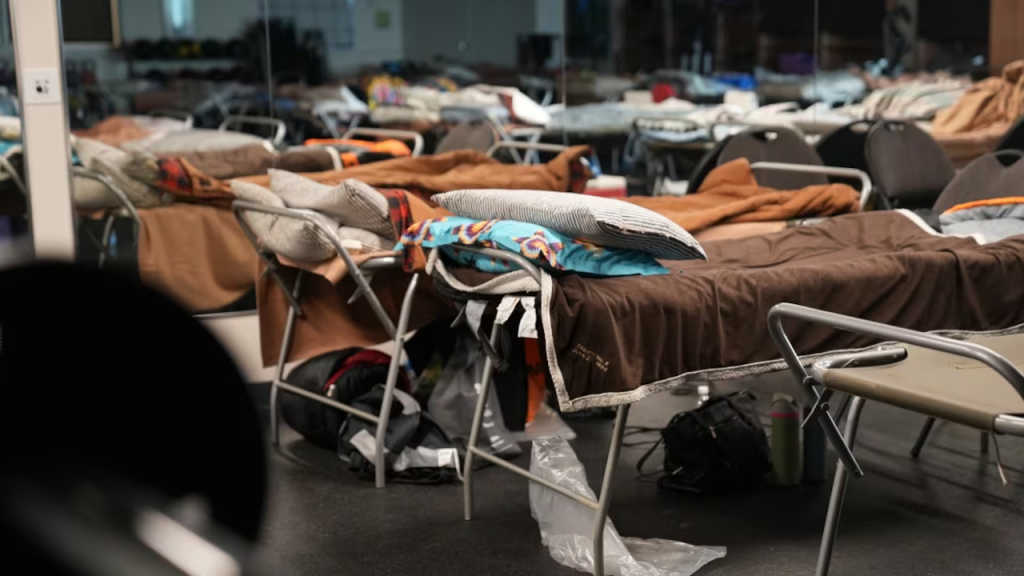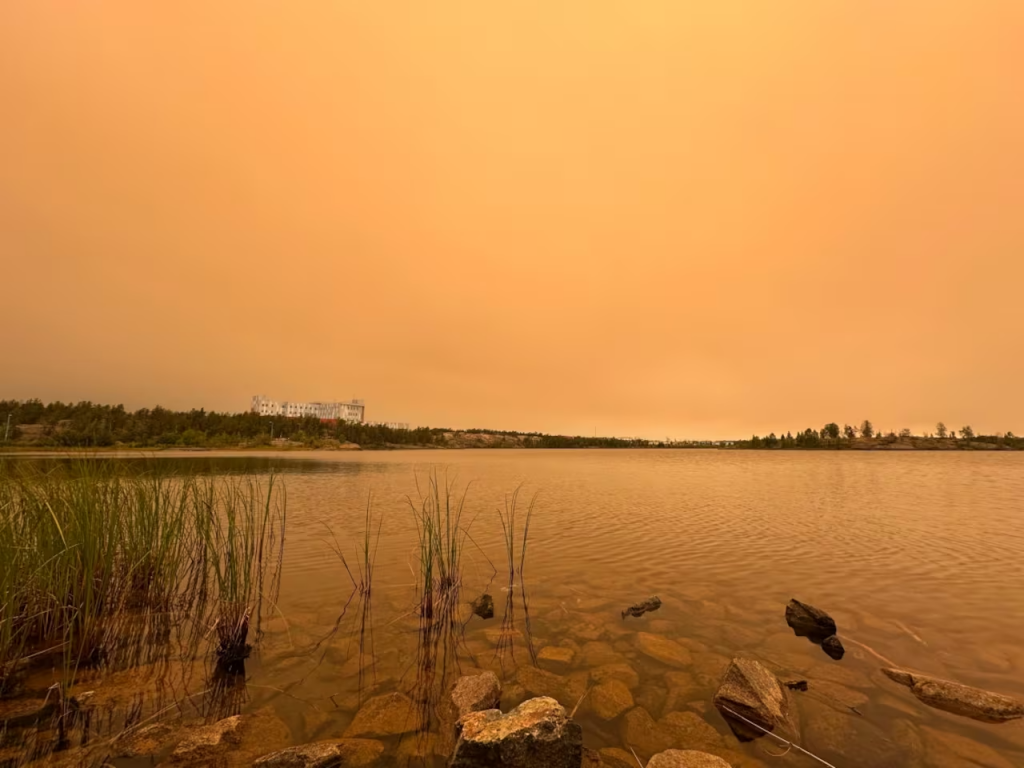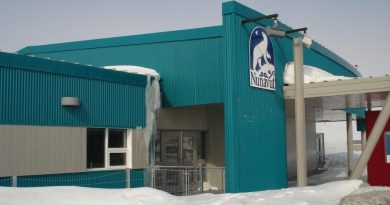Experts react to N.W.T. rejecting idea of creating separate emergency planning agency

Creating a separate agency is best practice, but the reality of staffing it is a challenge, one expert says
Emergency planning specialists are reacting to the N.W.T. government’s decision to reject a recommendation that it create a separate agency to plan for disasters.
The recommendation came out of an after-action review into the territory’s handling of the 2023 wildfires. The report found issues with communication, training and coordination and issued 35 recommendations, 34 of them the territory either fully or partially agreed with.
The lone recommendation the territory disagreed with was that it create a standalone emergency management organization, moving its current organization outside of the Department of Municipal and Community Affairs (MACA).
Sophia Craig-Massey is a professional emergency management disaster specialist who teaches disaster management at York University. She said more and more jurisdictions in the south are creating separate emergency management standalone agencies for a reason.
“So we have seen and we have learned from other provinces that yes it is best practice to have a standalone agency, but it is also a challenge to get those resources,” she said.
Craig-Massey said staffing these agencies in the south is an issue and that would likely be the same if not worse in the N.W.T.

Craig-Massey said the issues highlighted in the N.W.T.’s after-action reviews are similar to after-action reviews for disasters across the country, whether it be a lack of communication, improved training or a lack of resources.
She said that’s because this is a Canada-wide issue.
“There was a lot done in emergency management in the early 2000s, following SARS and following the big blackout in Ontario,” Craig-Massey said.
“But that has really gone stale… meanwhile, the sector itself has changed and it needs to change because the threats coming at us are changing, are increasing, are becoming way more complex.”
Craig-Massey said although there are obvious limitations to establishing a standalone agency, any investment in emergency management now would likely pay off in the long run.
“I would say that investing in an emergency management office now would certainly be the smart thing to do, to plan, to prepare for the increased hazards that we are undoubtedly going to see.”
A standalone agency alone won’t fix pre-existing issues
Eric Kennedy, an associate professor of disaster and emergency management at York University, said a standalone agency doesn’t automatically solve all the issues.
“There are ways that could be helped by a stronger presence, for instance, of an independent territorial emergency management organization standing alone as an agency,” he said.
“But there are also ways that they’re still going to have to deal with all the same coordination challenges.”
Kennedy said the biggest issue highlighted in almost all after-action reviews are around communication and coordination, and establishing a new agency doesn’t just solve those issues.
Kennedy said that sometimes these calls for a unified standalone agency are also bundled with other recommendations like more staffing and funding.
“And one of the conversations we could have is about the question of does making it an independent agency help to achieve those?” he said.
The N.W.T. has said it’s not going to create a new agency and will instead work on improving the existing structure. Vince McKay, MACA minister, said the territory’s population of over 40,000 makes it difficult to staff a standalone agency, and the department would essentially have an off-season in the winter.
Kennedy said he understood some of the reasons the territory listed, but said emergency management is a year-round responsibility.
“There’s critical fire mitigation, fire preparedness and fire recovery work that has to be done year round. We’ve got to be building trusted relationships with communities, right?” he said.
“There’s been lots of coverage about the challenges of mis[information] and disinformation in wildfire, and the way we overcome that is through building trust, building relationships.”
With files from Rachel Zelniker
Related stories from around the North:
Canada: N.W.T. gov’t rejects recommendations to create dedicated emergency management agency, CBC News
Finland: Wildfires continue to burn across Lapland, Yle News
Norway: Smoke from Canadian wildfires forecast to reach Norway, The Associated Press
Russia: New NOAA report finds vast Siberian wildfires linked to Arctic warming, The Associated Press
Sweden: High risk of wildfires in many parts of Sweden, including North, Radio Sweden
United States: Wildfires in Anchorage? Climate change sparks disaster fears, The Associated Press



